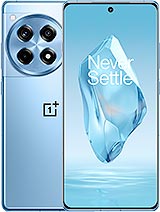OnePlus 12R alternatives
Tap above to see alternatives.
Oppo A3x 4G alternatives
Tap above to see alternatives.
OnePlus 12R

OnePlus 12R
-
Snapdragon 8 Gen 2
4 nm
-
5500 mAh
100W
-
6.78"
1264x2780 pixels
-
50 MP
4K@30/60fps
-
Specs

Oppo A3x 4G

Oppo A3x 4G
-
Snapdragon 6s Gen 1
11 nm
-
5100 mAh
45W
-
6.67"
720 x 1604 pixels
-
8 MP
1080p@30fps
- Specs
1x3.2 GHz Cortex-X3
2x2.8 GHz Cortex-A715
2x2.8 GHz Cortex-A710
3x2.0 GHz Cortex-A510
2.1 GHz, Quad core, Cortex A73
2 GHz, Quad core, Cortex A53
8GB 256GB (UFS 3.1)
12GB 256GB (UFS 3.1)
16GB 256GB (UFS 3.1)
4GB 128GB (eMMC 5.1)
f/1.8, 24mm (wide), 1/1.56", 1.0µm, multi-directional PDAF, Laser AF, OIS
8 MP
f/2.2, 16mm, 112˚ (ultrawide), 1/4.0", 1.12µm
2 MP
f/2.4, (macro)
f/2.0, (wide), PDAF
Auxiliary lens
1080p@30/60/120/240fps
f/2.4, 26mm (wide), 1/3", 1.0µm
f/2.2, (wide)
SIM1: Nano, SIM2: Nano
SIM1: Nano, SIM2: Nano
15 5G bands
n1, n2, n3, n5, n7, n8, n12, n20, n28, n38, n40, n41, n66, n77, n78
In this performance comparison, the OnePlus 12R with its Qualcomm Snapdragon 8 Gen 2 (4nm) performs better than the Oppo A3x 4G with the Qualcomm Snapdragon 6s Gen 1 (11nm), thanks to superior chipset efficiency.
OnePlus 12R offers 3 years of OS updates, while Oppo A3x 4G does not have confirmed OS update information. OnePlus 12R receives 4 years of security updates, while Oppo A3x 4G does not have confirmed security update information.
OnePlus 12R features a superior AMOLED display, while Oppo A3x 4G comes with an LCD panel. In terms of smoothness, OnePlus 12R offers a higher 120 Hz refresh rate, ensuring fluid scrolling and animations. OnePlus 12R also boasts a brighter screen with 4500 nits of peak brightness, enhancing outdoor visibility. Notably, OnePlus 12R offers a higher screen resolution, resulting in sharper visuals and more detailed content.
OnePlus 12R comes with a larger 5500 mAh battery, which may offer longer usage on a single charge. OnePlus 12R also supports faster wired charging at 100W, compared to 45W on Oppo A3x 4G.
OnePlus 12R offers better protection against water and dust with an IP64 rating.
- OnePlus 12R – Check price here
¹ Scores can vary even with the same chipset due to RAM, thermals, and software optimization.










